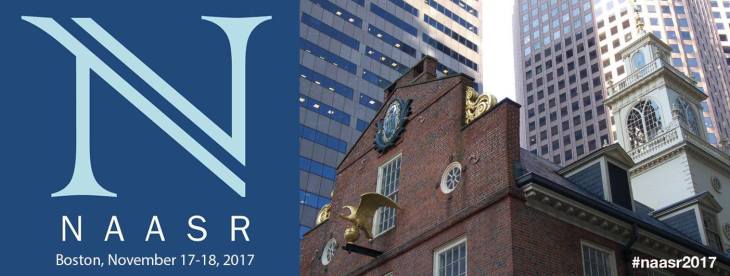
The Things We Study when We Study Religion
Following NAASR’s annual programs in 2015, devoted to theory, and 2016, on method, the program for 2017 will focus on the things that we, as scholars of religion, study. What, for instance, counts as data? How is it imagined, handled, or constructed? Who decides what is a valid or invalid research topic—and which approach suits it?
There exist longstanding and still active debates in the field regarding whether the items that we study pre-exist our approaches or whether our approaches actually create the conditions in which the former come into existence. It should come as no surprise, then, that the inter-relationship between theory, method, and data is complex and hardly settled. In fact, for some the term “data” itself is to be avoided because it is thought to remove us from the human subjects whom we study. Such subjects, it is assumed, embody intentional centers of meaning-making and therefore they require methods of study that differ, both qualitatively and quantitatively, from those employed by scholars in other fields. Yet for others, people’s self-understanding as agents does not lessen the importance of the non-agential structures in which they live (from genetics to class). Such recognition requires scholars to study people’s claims and behavior in a way that is far less impacted by intentionality than some may assume. We could also add to this mix those who examine the conditions and shape of the field itself, thereby finding scholars themselves as the item of interest. It is clear, then, that to identify as a scholar of religion does not necessarily mean that we all study the same thing, let alone in the same manner. For the distance between those who now study what is called embodied or lived religion, on the one hand, and, on the other, the processes examined by cognitive scientists is great indeed. A pressing question, however, is whether this breadth strengthens or undermines the field.
Following the model used for the past two annual meetings, three main, substantive papers were invited and will be distributed both to respondents and NAASR members approximately one month prior to the meeting. These main papers will only be summarized at the session. Each paper will then have four respondents, who will have ten minutes each to reply to the main paper. This will be followed by an open discussion of roughly one hour. As per the past two years, the aim once again is to see this this session published as a book (with responses from the main paper presenters).
Subjects: Annette Reed (University of Pennsylvania)
Chair: Drew Durdin (University of Chicago)
Respondents:
Adam Stewart (Crandall University)
M. Adryael Tong (Fordham University)
John Soboslai (Montclair State University)
Jennifer Shelby (Memorial University of Newfoundland)
Objects: Matthew Baldwin (Mars Hill University)
Chair: Kevin Schilbrack (Appalachian State University)
Respondents:
Petra Klug (University of Bremen)
Holly White (Syracuse University)
Peggy Schmeiser (University of Saskatchewan)
Lucas Wright (UC Santa Barbara)
Scholars: Craig Martin (St. Thomas Aquinas College)
Chair: Ian Cuthbertson (Queens University)
Respondents:
Vaia Touna (University of Alabama)
Martha Smith Roberts (Sewanee)
Jason Ellsworth (Dalhousie University)
Joel Harrison (Northwestern University)
A fourth, separate panel, features invited papers on important sites in the field today, as a way to open a discussion on the state of the study of religion, with regard the issues of relevance to scholarship, teaching, and the institutions in which we do our work. Like the other sessions, plenty of time will be reserved for discussion following.
Roundtable
Steven Engler, Chair (Mount Royal University)
Sarah Dees, Labor (Northwestern University)
Richard Newton, Teaching (Elizabethtown College)
Rebekka King, Departments (Middle Tennessee State University)
Greg Alles, Research (McDaniel College)
Bans, Boycotts, Institutional Statements: A NAASR Perspective
Chair: Adrian Herman (Univ of Bonn)
Edith Szanto (American University of Iraq-Sulaimani)
Nathan Loewen (University of Alabama)
Suzanne Owen (Leeds Trinity University)
Theorizing Ancient Theories of Religion (Co-Sponsored by the Greco-Roman Religions Section)
Respondent: Nickolas Roubekas (University of Vienna)
Jennifer Eyl (Tufts University)
William W. McCorkle, Jr. (Laboratory for the Experimental Research of Religion)
Additional panelists tbd
